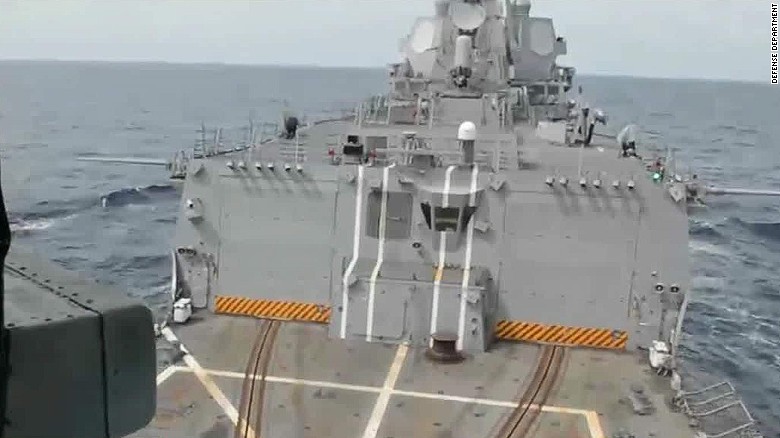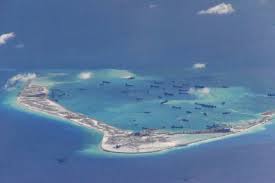Calmness and patience are needed between China, U.S. in South China Sea
The competition for influence between the United States and China in the South China Sea entered a new stage when the warship U.S.S. Lassen sailed near China's two man-made islands, aiming to demonstrate that the U.S. will go anywhere international laws allow.
There is no doubt that the U.S. has officially stepped into a very complicated matter in the South China Sea -- and it is a risky one.
The Chinese government has strongly protested against the U.S. move by issuing stern warnings to Washington and summoning its ambassador to Beijing. Further action would be taken to ensure China's national sovereignty, the Chinese government promised. Such words should not be taken lightly; after all China regards the South China Sea as one of its core national interests. That means, if necessary, China would go to war to defend them -- though war is always the last resort when everything else fails.

Tensions grow in the South China Sea
READ: Showdown in the South China Sea explained
On the other hand, China should fully understand the U.S. determination and will to protect its own national interests in the South China Sea, including the freedom of navigation. Thus we seem to be in a classical dilemma: two great powers seem to be locked into a perpetual conflict or even war, as renowned scholar John Mearsheimer warned us. How to resolve this conflict or at least reduce the tensions has become a critical issue for both powers.
Calming the situation
To begin with, both powers should understand that the South China Sea issue is never just the South China Sea issue. In other words, both powers must focus on the larger issue of US-China relations, or how to benefit from mutual cooperation rather than mutual conflict. Although this seems to be a cliché in US-China relations, in reality it can be easily forgotten when emotions on both sides run high and hotheads take over both countries' foreign policies. The simple truth is both countries benefit tremendously when they cooperate, but hurt themselves when they struggle against each other.
Specific steps should be taken by both sides to calm down the situation before it escalates further. On the U.S. side, Washington needs to be more restrained by not conducting any further 'freedom of navigation" operations before it has a serious dialogue on the issue with China. The U.S. has already demonstrated its will and capability to go anywhere in the world; and there is no value added by constantly provoking China. Moreover, given the U.S. Navy's quantity disadvantage in the South China Sea, it would put both U.S. warships and Chinese ones in danger if China reacts strongly to it.

Chinese military confronts U.S. spy plane
OPINION: Washington 'not provoking China'
Furthermore, Washington should play the role of "honest broker" in the South China Sea issue by facilitating talks between China and other claimant states, either bilateral or multilateral talks. Lastly, the U.S. should promote candid talks with the PLA Navy to make sure any future encounters by the two navies would not lead to clashes and serious conflict. The U.S. has had some very positive experiences as a result of its cold-war era interactions with the Soviet navy; and it is now time to put them into good use in interacting with China.
Halting island construction
China, on the other hand, should also adjust its own policy toward the South China Sea. First, it could halt all construction activities if the U.S. agrees to end its "freedom of navigation" operations. Second, China could demonstrate the peaceful nature of its man-made islands by inviting international observers to those islands. Third, China should make an effort to create a "code of conduct" with other claimant states and ASEAN member states.
While these steps alone would not be enough to resolve the complicated South China Sea issue, they would demonstrate the sincerity of both the U.S. and China in trying to find a peaceful and friendly solution. None of the above steps can be implemented easily; but let's hope cool heads in both countries prevail.
News Courtesy: www.cnn.com











